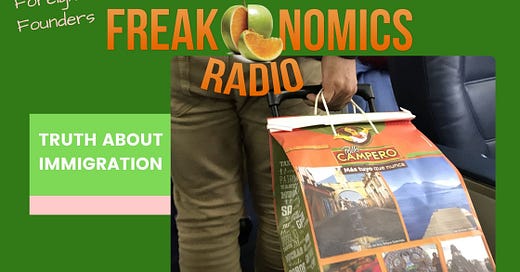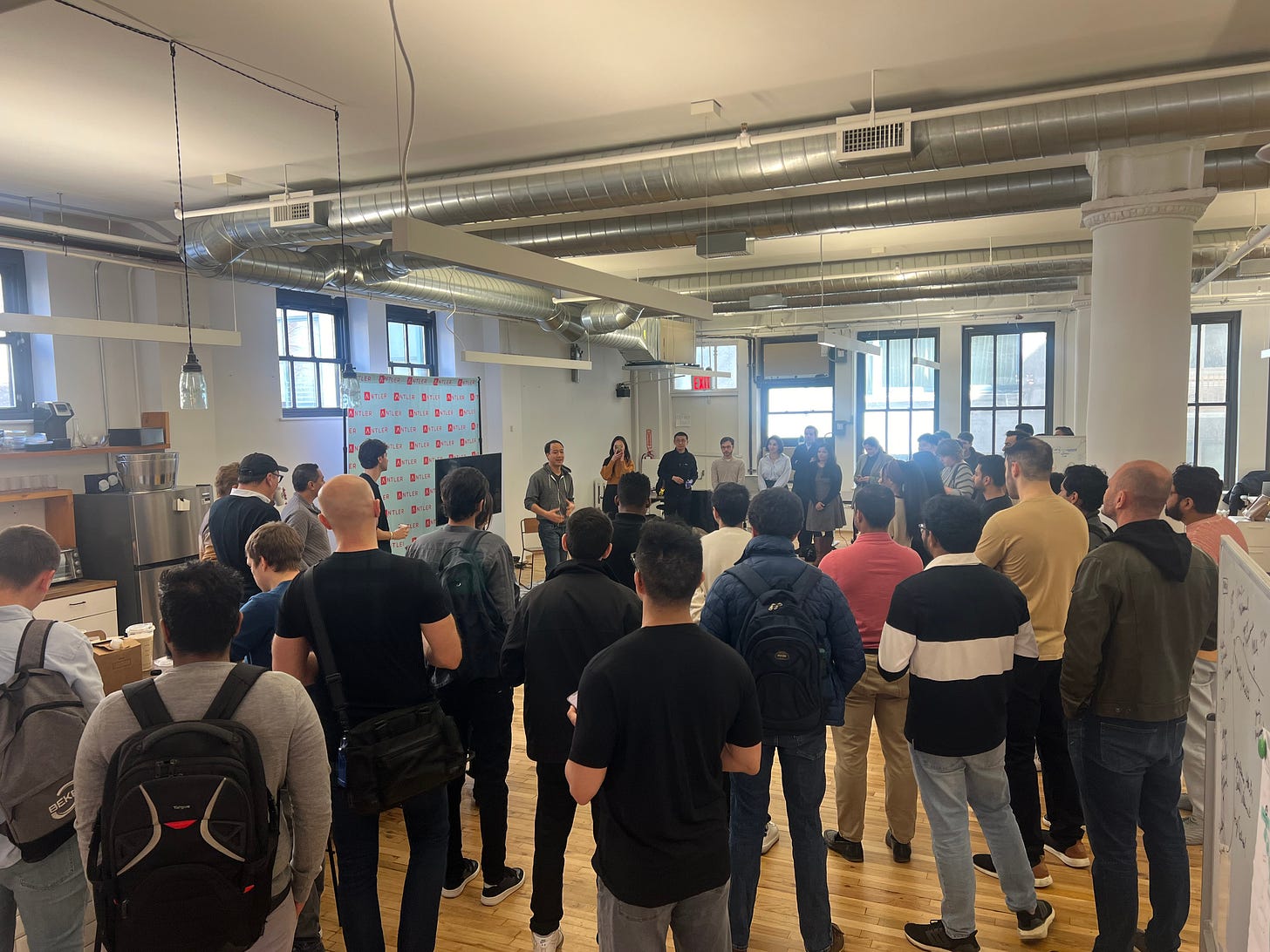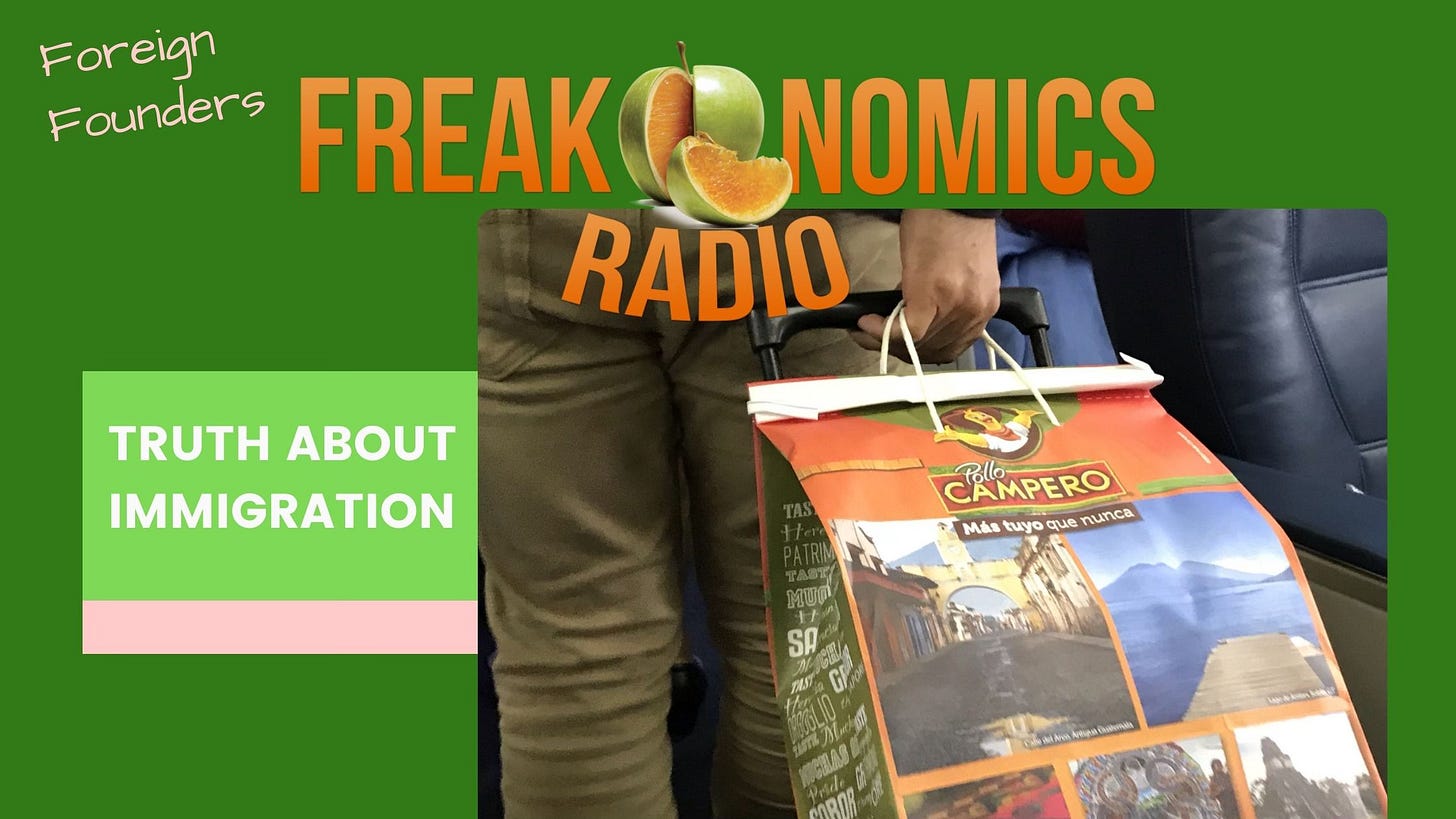This is the 2nd issue of Foreign Founders newsletter. I’ve met so many community members in the last few weeks alone through our in-person events (coffee meetup, fundraising and VC event) and it brings me so much joy to meet, learn from and connect with everyone. To many more!
We concluded an incredible Season 3 with Bhuva Shakti (Spotify, Apple) - what a stellar group of founders and the listenership keeps on growing!
🔊 We’re launching Season 4 next week with a multiple time founder with exits and a founder who’s bootstrapped his SaaS company to profitability and north of $1B GMV as the first two guests. It’s going to be awesome!
Community
🤚 A founder is looking for full stack developer. Experience with React Native, PHP, and AWS. Experience developing and managing the technical architecture, establishing standards, tools, and engineering processes. Please reply to this email if interested.
🍢 AAPI & Southeast Asian Food and Beverage Fair in NYC. Hosted by Singapore Global Network and Supermomos. Interested in being a part of the fair? Submit your brand to the fair.
💻 April 30, 2024 - Our friends at The Knowledge Shop is hosting a Demo and Feedback Day. Get user feedback right then and there - sign up here.
🍸 May 1, 2024 - Antler and Github are hosting an event in NYC “Underrepresented Founders Hang in NYC” - RSVP here.
❤️ Mental health awareness month is around the corner, one of the companies in the Foreign Founders network, Olo helps you reduce stress and realign your nervous system through sound. It’s easier than meditation (trust me!). Try the app for free on iOS and Android.
Truth about Immigration
I recently listened to the three (plus extras) part series of Freakonomics on Immigration. It didn’t cover everything but it wasn’t light on data either. So I’m taking this part to summarize what I learned from the episode, and it’s skimmable.
#Immigrant energy and innovation is real.
U.S. as a Destination
Some quick facts about immigration in the U.S. (and Canada in later episodes).
Nearly 14% of the American population was born elsewhere, that’s nearly 4X the global average (3.6%)
According to a Gallop polling, 160 million people around the world want to move to the U.S.
Intergenerational mobility. Children of immigrants are moving faster up the economic ranks when they get to adulthood compared than those are not children of immigrants. The rate of success are similar today compared to the past
Refugees do really well in the U.S., and this phenomenon is not global. They start out in the first year or two with less likelihood to get employed, however, within 5 to 6 years they’ve caught up or surpassed non-refugee status immigrants economically.
Immigrant Innovations
Incredible to see this information shared on the episode. This part got me fired up!
Immigrants are 80% more likely to start a business in the U.S. compared to a person born in America
Latin American immigrants are starting businesses at more than twice the rate of the U.S. population as a whole. The jump in Latino entrepreneurship has driven up the overall share of new businesses owned by immigrants, who accounted for 36% of launches last year compared with 25% in 2019, according to a new analysis of Census Bureau data. (WallStreetJournal, paywall)
Immigrant STEM workers in the U.S. are responsible for 30 - 50% of aggregate productivity growth between 1990 and 2010
A study shows that American inventors were 70% less productive, meanwhile American businesses patented 53% less for decades because of the loss of skilled immigrants and inventors
Immigrants are responsible for 36% of patents in the U.S.
A New Eggonomic Reality
A little story time! If I asked you what the fastest growing fast food chain in America was in 2023, would you have said Pollo Campero? The restaurant was founded by Juan Bautista Gutiérrez and his son, Dionisio, in Guatemala City in 1971, but the progenitor of their global expansion was Dionisio’s son and current President of the company, Juan José Gutiérrez.
Juan José Gutiérrez didn’t have a normal upbringing. His father, Dionisio, died in a plane crash when he was a teen, so he was involved with the family business early on. He became the president of Pollo Campero at just 23 years old and even when everyone was saying the restaurant had “reached its maturity”, he believed in its global potential. He wanted Pollo Campero to be the “Latin Chicken loved around the world”.
The restaurant chain expanded first into El Salvador, and quickly to other Central American countries, and then the eyes were set on America. In America, their expansion strategy targeted locations with a high population of Central American immigrants. The restaurant chain discovered this strategy when they analyzed their sales data and found that their highest selling stores were at airports in Guatemala City and El Salvador, specifically from travelers who were taking trips from these cities to U.S. cities.
“I went to visit my relatives in December and they told me not to bring anything but Pollo Campero,” said Ruth Gonzalez, who dutifully toted 65 pieces of chicken to her mother for the holidays. “Chicken is now folklore. And our people in the United States miss it.” The single biggest order was for 1,600 pieces, arranged two days in advance, later hauled the chicken in duffel bags to the U.S. and sold for profit (covering her plane fare) 🤣
Their strategy was dubbed (in the episode) the “Sanchez to Sanchez to Smith”, where the plan was first to have a strong following in local Guatemalan markets (Sanchez), then to their Guatemalan relatives in America (Sanchez), and finally to the rest of the population (Smiths). Innovative! This episode told the story of how immigrants could be the gateway for companies to tackle new markets, and these information are often nuanced and unreachable through traditional consumer reports.
This series was long but the content was really good, and I only covered a small percentage of it. They covered the political discussions in the U.S. and Canada, and Canada’s plan for opening its door for more immigrants. I highly recommend listening to the series.







